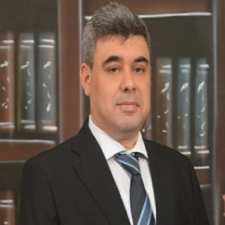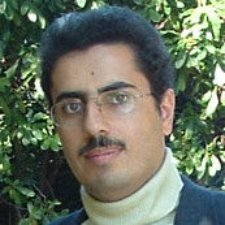We are pleased to introduce the plenary and keynote speakers for V-ICCETE 2026:

University of Dundee, United Kingdom
Dr. Mohammed Bashir is a globally recognized expert in environmental engineering, sustainable development and pollution control, with over 250 high-impact journal publications and an h-index of 52.He currently serves as a senior academic at the School of Engineering and Technology, CQUniversity Australia and adjunct professor at Universiti Tunku Abdul Rahman (UTAR), Malaysia. His research spans key areas such as pollution control, ESG compliance, life cycle assessment, circular economy, and advanced water and wastewater treatment technologies. With over 9,800 citations, Dr. Bashir has led numerous interdisciplinary projects funded by government bodies and industry partners, aiming to bridge science with actionable solutions. His current focus includes emerging contaminants (ECs), microplastics, and resource recovery in wastewater systems. A recipient of over 20 international awards and recognized among the world’s top 2% scientists by Stanford University, Dr. Bashir brings a unique blend of academic excellence and practical innovation to solving global environmental challenges.
NA
View Profile
Imperial College London, UK
Po-Heng (Henry) Lee's team specialises in resource recovery, greenhouse gas reduction, and enhancing human health through the application of environmental technologies, including anaerobic sewage treatment, anaerobic digestion, fermentation, and anaerobic ammonium oxidation (Anammox), and water reuse for a cooling system in the AI centre and semiconductor manufacturing applications. His research and teaching have primarily focused on three key areas: 1) overcoming classical energetics limitations by enhancing electron transfer efficiency, via hopping and tunnelling, 2) applying quantum information theory to microbial metabolism and gene regulation, and 3) water reuse and cooling system optimisation—both within Water Centres and in semiconductor manufacturing applications
N/A
View Profile
Carleton University, Canada
Mohammad is a professor of geotechnical engineering with over two decades of experience in research, teaching, and consulting. He holds a PhD in civil engineering from Western University and a PDF in geoenvironmental engineering from Queen's University, Canada. Mohammad specializes in innovative foundation systems, geotechnical implication of climate change, modern landfills, and seismic resistant geotechnical design. He has been actively engaged in addressing a variety of geotechnical engineering challenges, including pile foundations, deep excavation and shoring systems, landfill design, earth and tailing dams, tunneling, permafrost, and earthquake engineering. He has published over 100 journal and conference papers and registered 3 patents (Hook pile, GRAFTA, HALBR) in various geoengineering fields. Mohammad has also conducted numerous training courses for industry professionals worldwide, solidifying his reputation as a leading figure in geotechnical engineering.
Sustainable Nanomaterials for Cancer Treatment, AMR Infections, and Biofilm Inhibition
View Abstract
Brunel University London, UK
Dr. Muhammad Shafique is currently a Lecturer (Assistant Professor) in the Department of Civil & Environmental Engineering, College of Engineering, Design and Physical Sciences at Brunel University London, Since May 2022. Prior to this, he was a Postdoc fellow in the Department of Architecture and Civil Engineering at the City University of Hong Kong. He received his Ph.D. degree in Architecture and Civil Engineering from the City University of Hong Kong and M.S in Smart City and Construction Engineering from the University of Science and Technology, South Korea. Dr. Shafique’s research uses life cycle assessment, circular economy, and scenario modeling to identify the environmental problems of emerging products and systems. Historically, our society has taken a reactionary approach to the environment. By proactively understanding the environmental issues of technologies that are still under development, we can identify a greater number of optimal options and innovative solutions to avoid or reduce negative consequences. Shafique works on interdisciplinary topics including sustainable construction and transportation systems, green buildings, building information modeling (BIM), carbon-neutrality, sustainable design of energy systems, advanced fuels, sustainable and smart materials, machine learning, energy, environment & economics nexus, and climate change adaptation. One of his core areas of work includes developing an integrated modeling approach based on life cycle assessment and circular economy for sustainable construction and urban mobility. Looking forward, Dr. Shafique is determined to fight against climate change and reduce the carbon footprint of the civil and transportation industry as the key considerations while enabling a high level of sustainability and well-being for users.
N/A
View Profile